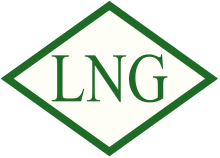
Variable UK gas entry fees could rise next winter

UK regulator Ofgem plans to overhaul the UK's gas transmission charging structure from 1 October. In a significant departure from the existing regime, a large proportion of revenue recovery would be shifted from capacity-based to commodity-based charging.
Provided the tariff reform goes ahead, NBP prompt prices could hold a much tighter premium to the TTF next winter than a year earlier, while still encouraging Norwegian pipeline flows to be maximised to the UK and incentivising flows along the BBL pipeline from the Netherlands.
And NBP prompt prices would also need to hold a narrower premium to Zeebrugge to encourage Interconnector flows. This is because fees would largely be charged on capacity bookings rather than on each molecule of gas that enters the grid, with shippers considering capacity fees as sunk once bookings have been made.
The tariff reform foresees that only the system operator (SO) commodity fee would still be levied, with the transportation owner (TO) commodity charge to be removed. National Grid has indicatively set the TO charge at 0.40p/th for the 2020-21 winter, while the combined TO and SO commodity charge was 1.77p/th last winter.
But there is growing uncertainty as to whether the tariff reform will be implemented from 1 October. Ofgem would have to make a final decision on the fees no later than this month if National Grid is to introduce the changes on time, the system operator has warned. And several industry participants have called for a delay owing to operational challenges related to the Covid-19 pandemic.
In the event of a delay, variable fees for entry into the UK grid could be the highest for any winter since at least the start of the last decade.
National Grid has set its indicative TO fee at 1.46p/th, which would bring the combined TO and SO charge to 1.86p/th. This would be up from 1.66p/th for last winter and the highest for any winter since at least 2010-11.
The fees, which National Grid was obliged to publish at the end of last month, have been calculated "solely on the current methodology" and will continue to be "until more certainty is available on the potential changes", the system operator said.
National Grid also included an uncertainty range of 20pc above or below its estimated entry commodity charge, with more potential for fees to increase than to fall. This is to account for no revisions having been made to the base assumptions, because of uncertainty around "the extent and the duration of any Covid-19 impact on demand", the system operator said.
The NBP fourth-quarter 2020 market closed at a 0.98p/th premium to the TTF yesterday. This would be enough to offset the 0.40p/th TO commodity charge but far too narrow to cover the combined TO and SO fee of 1.86p/th. The NBP-TTF first-quarter 2021 basis market would be wide enough to cover indicative variable fees under both regimes.
The final charges will be published by 1 August at the latest, to provide two months' notice to shippers as required by the network code.
By Natasha Fielding


Gold price edges up as market awaits Fed minutes, Powell speech

Glencore trader who led ill-fated battery recycling push to exit

Emirates Global Aluminium unit to exit Guinea after mine seized

Iron ore price dips on China blast furnace cuts, US trade restrictions

Roshel, Swebor partner to produce ballistic-grade steel in Canada

Trump weighs using $2 billion in CHIPS Act funding for critical minerals

US hikes steel, aluminum tariffs on imported wind turbines, cranes, railcars

EverMetal launches US-based critical metals recycling platform

Afghanistan says China seeks its participation in Belt and Road Initiative

Energy Fuels soars on Vulcan Elements partnership

Northern Dynasty sticks to proposal in battle to lift Pebble mine veto

Giustra-backed mining firm teams up with informal miners in Colombia

Critical Metals signs agreement to supply rare earth to US government-funded facility

China extends rare earth controls to imported material

Galan Lithium proceeds with $13M financing for Argentina project

Silver price touches $39 as market weighs rate cut outlook

First Quantum drops plan to sell stakes in Zambia copper mines

Ivanhoe advances Kamoa dewatering plan, plans forecasts

Texas factory gives Chinese copper firm an edge in tariff war

Energy Fuels soars on Vulcan Elements partnership

Northern Dynasty sticks to proposal in battle to lift Pebble mine veto

Giustra-backed mining firm teams up with informal miners in Colombia

Critical Metals signs agreement to supply rare earth to US government-funded facility

China extends rare earth controls to imported material

Galan Lithium proceeds with $13M financing for Argentina project

Silver price touches $39 as market weighs rate cut outlook

First Quantum drops plan to sell stakes in Zambia copper mines

Ivanhoe advances Kamoa dewatering plan, plans forecasts

















